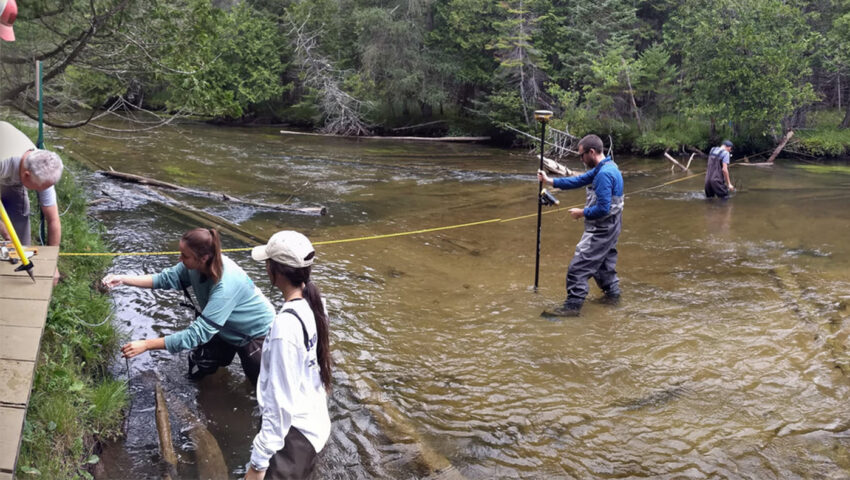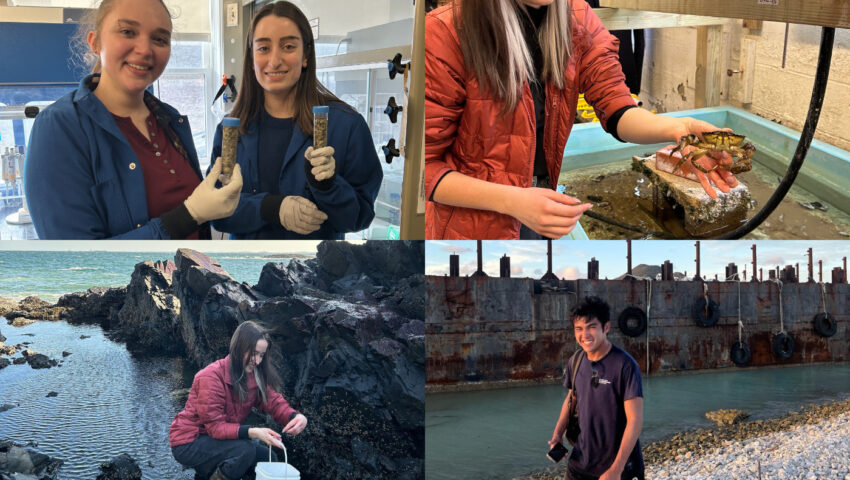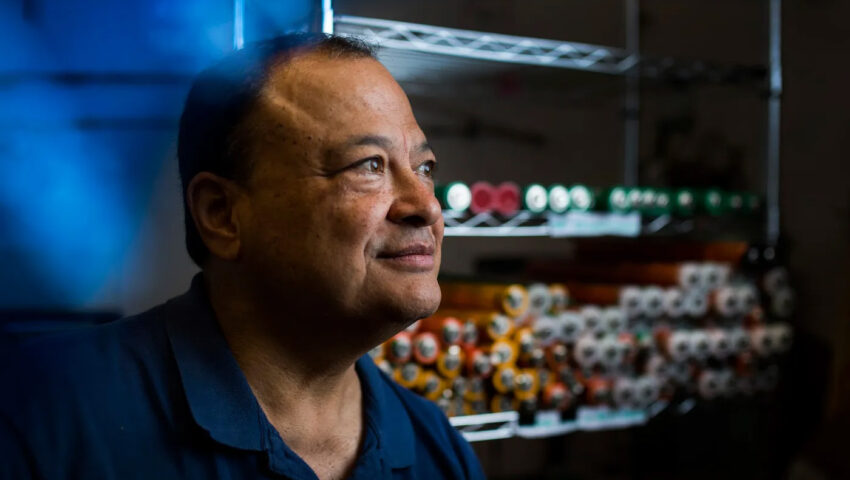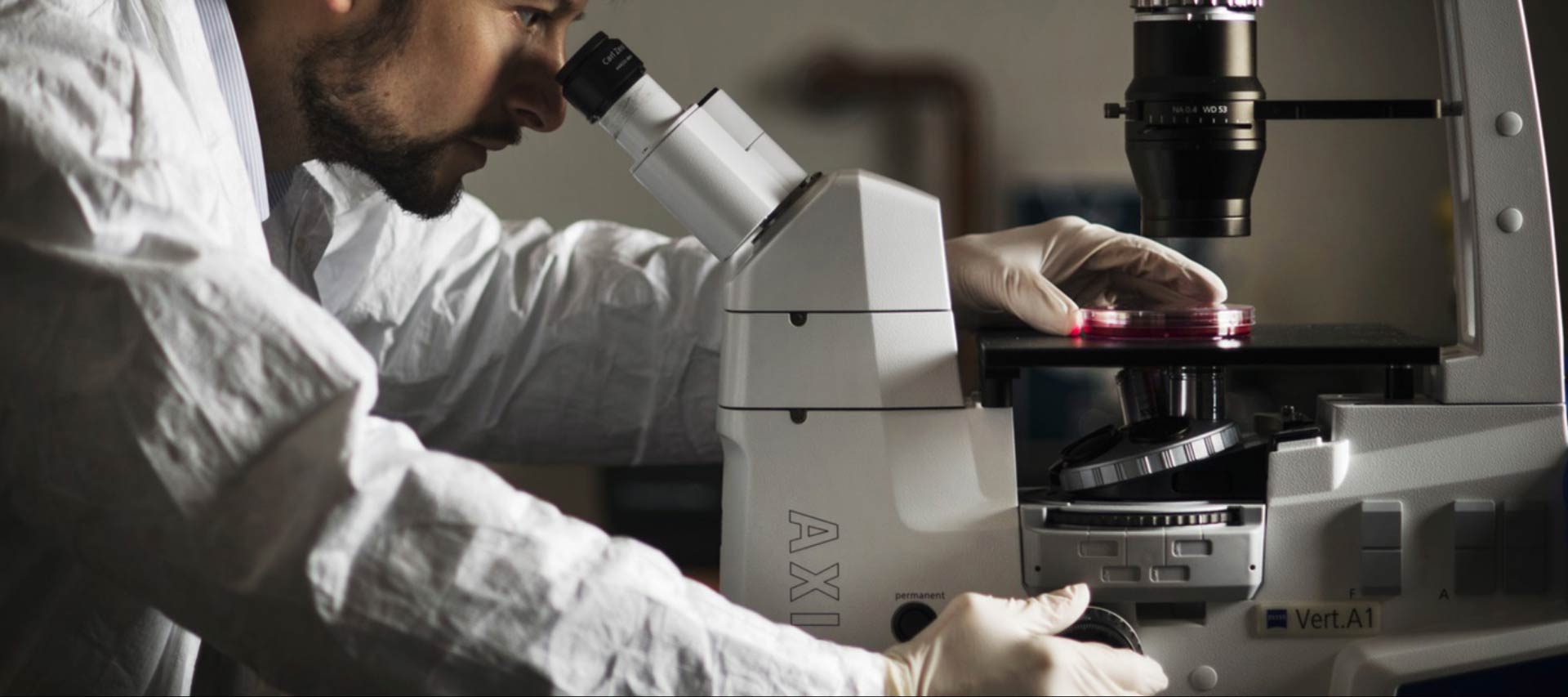
People
We are teachers, leaders, researchers, advisors, business professionals and students. Welcome to Northeastern’s College of Science
Jeffrey Agar
Jared Auclair
News
Exploring the Role of Citizen Science in Research and Community Engagement with Damon Hall
With the excitement of his recent publication, associate professor of Environmental Science and Public Policy, Damon Hall, met with me to discuss his research on the importance of citizen science.
“Citizen silence: Missed opportunities in citizen science” can be accessed here.
What initially sparked your interest in citizen science and its role in research?
My interest was initially sparked by the realization of significant gaps in our understanding of water resources, particularly in smaller streams where data is often lacking. In the U.S., the U.S. Geological Survey’s national river gauge system focused on collecting streamflow conditions from major rivers, leaving many smaller tributaries unmonitored. Citizen science offers a solution by empowering people to contribute to gathering crucial environmental data.
I was also curious about why people participate in citizen science and what are the possibilities of this relationships for scientists and society. My research focuses on stakeholder engagement and leveraging citizen expertise to enhance decision-making processes for experts and scientists. I explore ways to meaningfully engage citizens in these endeavors, aiming to bridge the gap between scientific knowledge and community involvement for better environmental decisions. Citizen science promises to enrich society’s and the sciences’ understanding of environmental systems for making more informed decisions for sustainable resource management.
How would you define the term “citizen science” for someone unfamiliar with the concept?
Citizen science utilizes the public’s participation in some facet of scientific research, ranging from data collection to analysis to question and study design.
One key advantage of citizen science is its ability to access data from locations that may be inaccessible to scientists or process and analyze large quantities of data. Physical proximity to data sources is crucial, and citizens often possess valuable knowledge about their local environments, such as identifying erosion spots along rivers or understanding intricate yet observable ecological dynamics. Additionally, citizen scientists can provide environmental information that complements existing datasets, enriching our understanding of complex ecological systems.
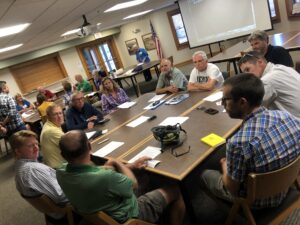
What are some common challenges faced by researchers when engaging with citizen scientists, and how do you suggest overcoming these challenges?
The short funding cycles of scientific research, often 2-4 years, challenge the establishment of lasting citizen science initiatives. To overcome this, scientists must design studies that are mutually meaningful to both scientists’ and communities’ interests. This increases the likelihood that the project takes on a life of its own.
Another common challenge with citizen science projects is scientists’ myopic attention to data which can lead to treating participants as data collection instruments. This overlooks the expertise of local participants and missed opportunities to improve the outputs of the science by learning from them. Beyond data collection, it’s essential to explore how people want to engage with the project. In environmental topics concerning shared natural resources, participants are often driven by personal interest. Researchers should consider other ways the project can meaningfully connect to these motivations beyond engagement with data.
In your opinion, what are the key differences between a data-centered approach and a relational approach to citizen-science research?
In citizen science, there’s a spectrum of participation, from those who contribute data passively to others who seek a more involved, relationship-centered approach. The latter emphasizes collaboration, where participants provide feedback on data usage and help shape the project’s outcomes to meet their community’s needs. This approach values the practical application of data, ensuring that models and maps created are relevant and usable by citizens.
Central to the relational-centered approach is understanding stakeholders’ interests and finding common ground for collaboration. By actively involving citizens in discussions about data usage and product development, scientists can tap into local expertise and ensure that the project aligns with community needs. This collaborative process fosters mutual understanding and ownership of the project’s goals.
Maintaining regular contact with active citizen scientists is essential in this approach, allowing scientists to stay informed about community feedback and adapt the project accordingly. The emphasis is on continued engagement and dialogue, where scientists express gratitude for contributions and seek ways to make the data useful and accessible to participants, thereby nurturing a collaborative and mutually beneficial relationship.
What do you hope the future holds for citizen science, both in terms of research outcomes and community engagement?
Continued enthusiasm for citizen science participation is crucial for both scientists and citizens alike! Ultimately, the aim of science is to generate knowledge that benefits science, society, and for fields like environmental science, informs policy. By embracing citizen science and valuing participant input, scientists can make their research more relevant and impactful for society at large. Listening to the voices of citizen scientists enhances the meaningfulness and utility of scientific knowledge, bridging the gap between research and real-world applications.
Photos courtesy of Damon Hall
New models of Big Bang by Northeastern physicists show that visible universe and invisible dark matter co-evolved
Physicists have long theorized that our universe may not be limited to what we can see. By observing gravitational forces on other galaxies, they’ve hypothesized the existence of “dark matter,” which would be invisible to conventional forms of observation.
Pran Nath, the Matthews Distinguished University Professor of physics at Northeastern University, says that “95% of the universe is dark, is invisible to the eye.”
“However, we know that the dark universe is there by [its] gravitational pull on stars,” he says. Other than its gravity, dark matter has never seemed to have much effect on the visible universe.
Yet the relationship between these visible and invisible domains, especially as the universe first formed, has remained an open question.
Read more from Northeastern Global News
Photo by Getty Images
Predatory Crabs, Morphing Oysters, and Ocean Electrolysis: MES Undergrads lauded with PEAK awards to support their research
A record number of Northeastern undergraduates are pursuing PEAK project experiences this spring, including several motivated students within the Marine and Environmental Sciences department, including Grace Marnon, Kiran Bajaj, Nicole Mongillo, and Mark Teh. We caught up with each of these talented young scientists to learn more about their research!
Grace Marnon received a Summit award for her research in the Kimbro Lab investigating the “Impact of Predator Range Shifts on Parasite Behavior in the Marine Snail.” Grace is pursuing an Honors Thesis as a continuation of her MSC Summer Research Internship, focusing on the host-parasite dynamic between snails and their trematode parasites and how this is influenced by the presence of predatory crabs.
Grace, a third year Biology and Pre-Med student, got involved with the project after taking Disease Ecology as an elective with Dr. Kimbro. She is utilizing the PEAK award to continue her work, and plans to apply this research experience to her broader interests in human parasitology and neglected tropical diseases.
Kiran Bajaj (left), a third year Marine Biology major, and Nicole Mongillo (right), a fourth year Ecology and Evolutionary Biology major, were also awarded a Summit award for their research on the “Characterization of Morphological Differences in Locally Adapted Juvenile Oysters” with Dr. Katie Lotterhos. Kiran and Nicole got started in the Lotterhos lab as co-ops in Spring 2023, and subsequently applied for a PEAK award to be able to get more deeply involved with the research.
Kiran and Nicole are both interested in academia and pursuing graduate school, with a focus in ecology, conservation genomics, and sustainable aquaculture. Kiran was recently accepted into Northeastern’s Three Seas Program, a field-intensive Master’s program in marine biology, where she will continue her research journey. Nicole plans to expand on their research experience as a lab technician post-graduation and then apply for doctoral programs in ecology and evolutionary biology.
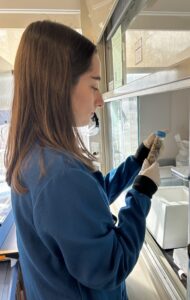
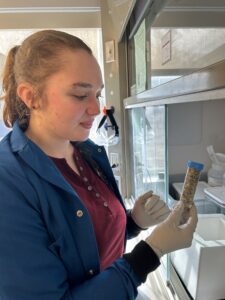
Mark Teh, a second year Biochemistry major, was granted a Base Camp award for his research with Dr. Justin Ries on “Optimization of Brucite Precipitation through Seawater Electrolysis in a Flow-through System.”
Mark has been involved in a variety of research experiences and is particularly passionate about the development of biologically-inspired approaches for addressing climate-related concerns. His future plans include attending graduate school, inspiring the next generation as a professor, and pursuing an entrepreneurial career focused on biotechnology-based climate solutions.
Northeastern professor Eugene Smotkin named fellow by prestigious American Association for the Advancement of Science
Professor of chemistry and chemical biology Eugene Smotkin has been named a fellow of the American Association for the Advancement of Science (AAAS).
A forerunner in the techniques of operando spectroscopy, Smotkin was the first to examine the behavior of chemical catalysts in fuel cells while they actively underwent chemical reactions.
Using various spectroscopic techniques, Smotkin’s work opened “windows” onto how the catalysts in these fuels function. Eventually, this work led him to repurpose commercial automotive batteries, specifically the large traction batteries found in Toyota hybrids.
When one of these batteries starts to fail, there are both “irreversible capacity losses and reversible capacity losses,” Smotkin says. “My equipment actually recovered the reversible capacity lost, and it enabled us to put these reconditioned batteries back into the aftermarket.”
This means that these batteries, which before were likely going to landfills, could now be inexpensively repurposed, both for cars and for other purposes.
Read more from Northeastern Global News
Photo by Adam Glanzman

